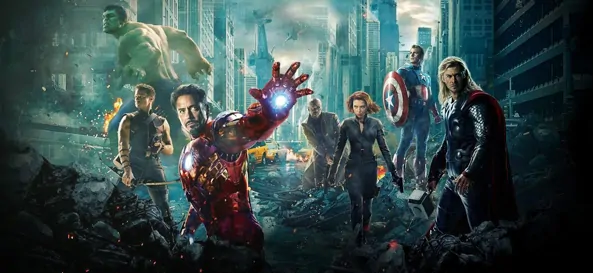
If the main thrust of a movie like The Ballad of Buster Scruggs is to be pointless, it becomes tricky to figure out how you’re “supposed” to react as a viewer. After all, how should you feel about a movie that intentionally tries to suck the feeling out of its story? If you’re happy or sad, does that mean the movie failed, or does it mean it was subversive and effective and profound? These are classic Coen Brothers questions. We’ve been here before with these guys, but in Buster Scruggs, their usual themes compound and become more pressing, because Buster Scruggs is six Coen movies in one.
Buster Scruggs is an anthology of six Western short films. There’s a unifying aesthetic to each movie—they’re all Coen projects, unmistakably—but there’s not a lot of similarity among them in terms of tone or theme. The movies don’t hold any narrative connection to each other either, so watching Buster Scruggs is a bit like a Coen Brothers restaurant menu: You can tell everything was made by the same chefs, but the dishes aren’t meant to mix.
The six stories span the Western spectrum. The titular short is about a musical gunfighter (a prime Tim Blake Nelson), “Near Algodones” is a robbery gone-wrong (James Franco shows up), “Meal Ticket” is a chilly two-hander (where Liam Neeson’s severity is put to sinister use), “All Gold Canyon” is a solitary mining tale (featuring Tom Waits, wonderful), “The Gal Who Got Rattled” is a pioneer love story (Zoe Kazan will make your heart throb) and “The Mortal Remains” (with a sturdy Brendan Gleeson) is a dark, bottled dialogue piece.
To summarize any of the mini-movies further would give too much away (they run between 15 and 25 minutes, just about), and while some stand out more than others—”Meal Ticket” and “The Gal Who Got Rattled” were exceptionally memorable while “Buster Scruggs” was the most fun—they all offer something sticky your brain can’t shake, even if that sticky something is the Coens’ typical nihilism.
Yep, the directors are still beating the same “life is random, nothing has meaning” drum that sounded best in No Country for Old Men, Big Lebowski and A Serious Man. They’ve played different tunes—Fargo has stirring notes of conviction, as does True Grit—but this cynical groove is their greatest hit, and Ballad of Buster Scruggs has them covering it over and over. It might be wearying if it wasn’t so weirdly beautiful.
It’s a shame this movie’s going to be watched on Netflix by most, because it deserves a theater experience. The landscapes are beautiful, and the camera often pulls back to show the characters small (and insignificant?) within the grand scheme of things. The West looks awe-inspiring in Buster Scruggs, but the Coen Brothers color it with a harshness that emanates from the plotlines of the six stories. The land sparkles with opportunity, but yeesh, heaven help you if you try to seize their riches. More often than not, you’ll be punished for your aspirations.
The characters in Ballad of Buster Scruggs have simple wants—gold, money, mythology—but their context cares little for their desires, and that lack of mercy leads to some of the toughest moments in the movie. People you care about will fail, suffer and maybe die, but your feeling for those losses might be short-lived, because the movie is always minutes away from whisking you off to the next story. Distractions from the tragic abound here, and it’s not until all the shorts are over that you’ll remember their expensive toll.
So maybe Buster Scruggs’ nature as a collection actually underscores its challenges. These are separate, disparate stories of the West—snapshots of varying lifestyles and communities and locales—and if you step back and take it in all at once, you’re left less with the specific tragedies and triumphs and more with an overall sense of this world’s uniform climate. Snobby viewers will say Buster Scruggs isn’t about anything so much as it’s about the West itself. They might be right. It wasn’t a kind place.
But on a human-to-human level, Buster Scruggs’ can’t keep you from attaching yourself to its charming, colorful characters. You’ll love Tom Waits and Zoe Kazan. You’ll be shocked at Liam Neeson. Tim Blake Nelson will keep you grinning from ear to ear. Despite their movie’s dourness, the cast still will wring emotion out of you, but that complicates matters further. What do you make of a movie that punishes you for feeling anything about it? Is the message here to be wary of your feelings or hold them back? Is that useful? Should we be turning off our empathy because a movie makes us suffer for it?
Perhaps a movie can be cold, but it seems nonsensical to ever be cold toward a movie. The Ballad of Buster Scruggs might not be rewarding, but it’s still evocative, and just because a movie turns off its emotional core doesn’t mean you should. Let yourself feel. You might love this movie. Just be prepared for it not to love you back.






















